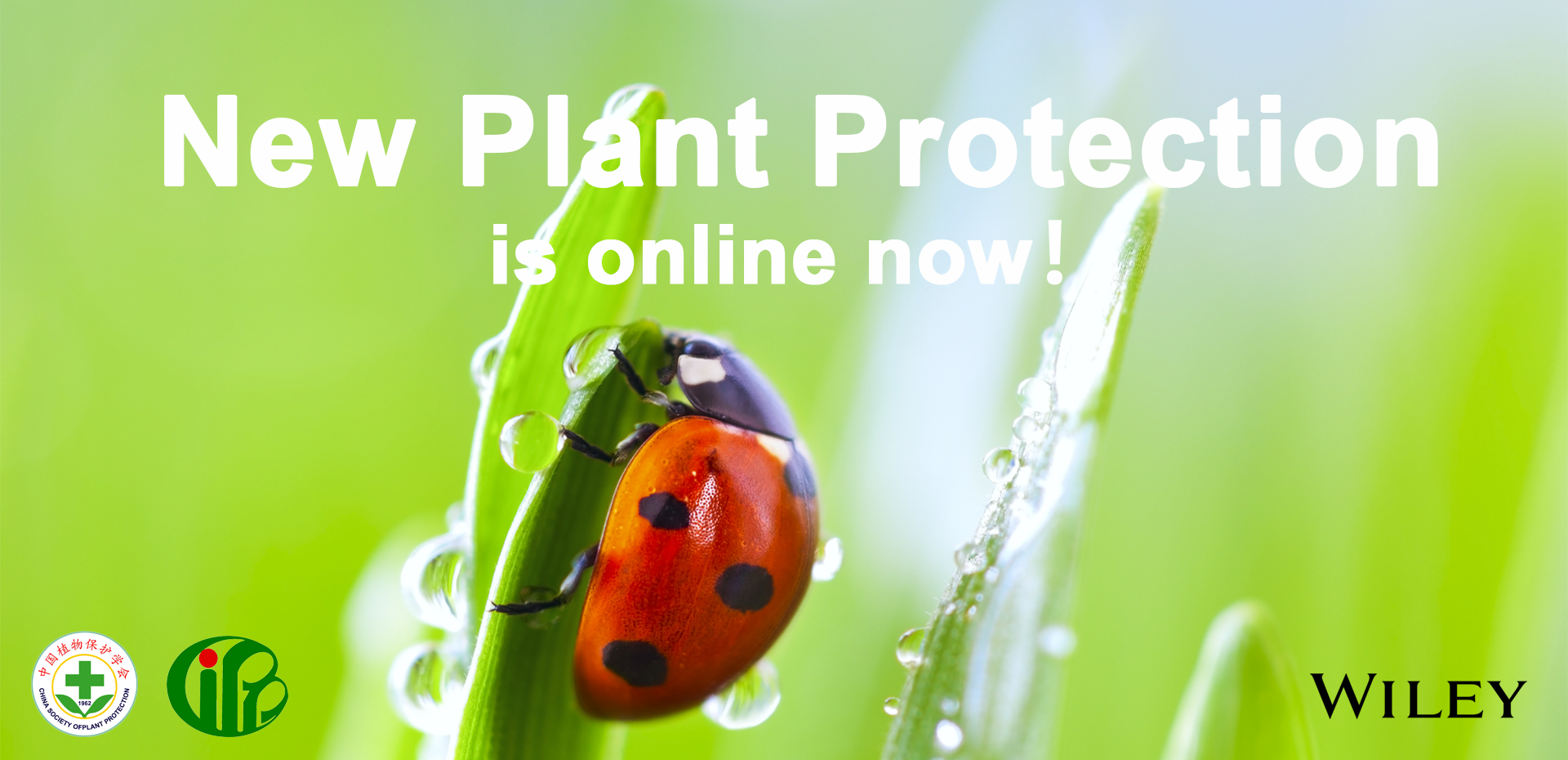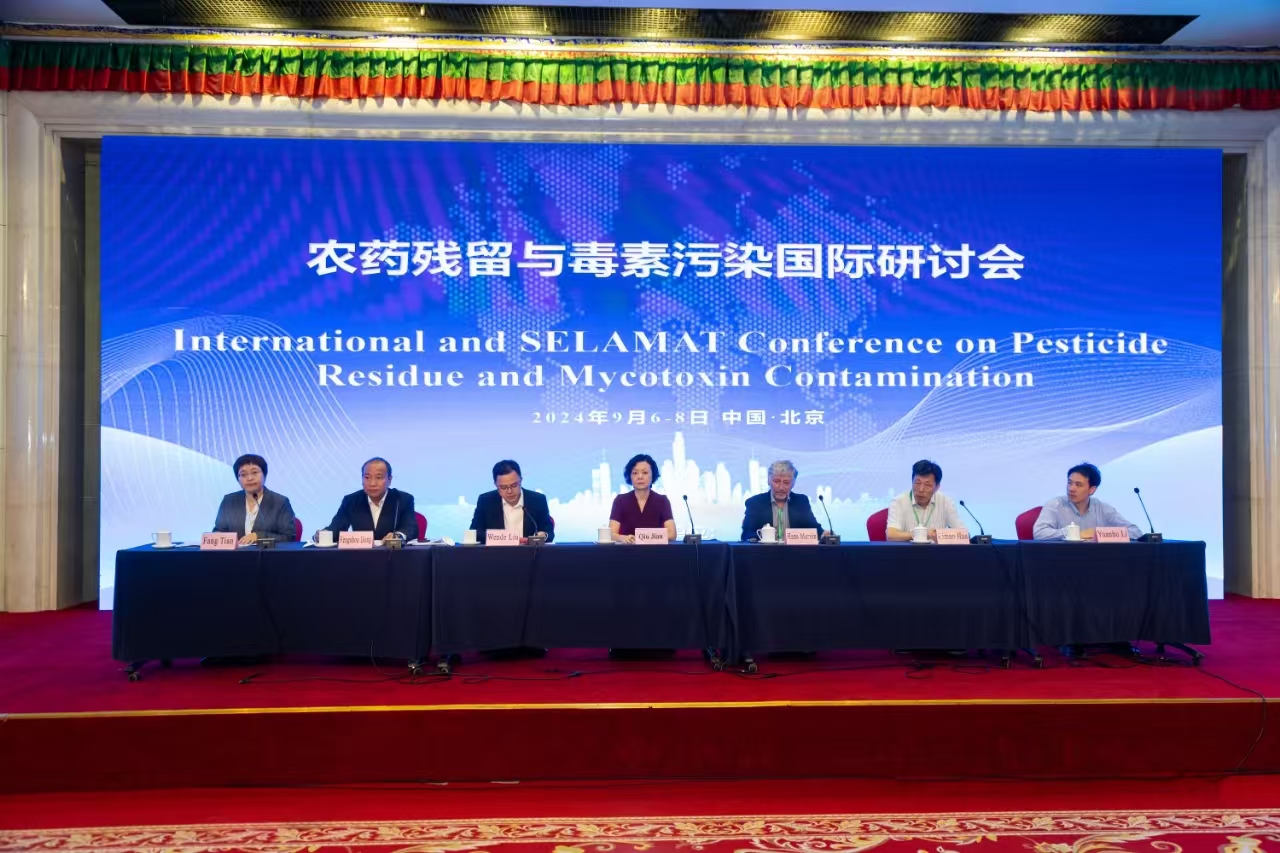Three IPP achievements won first prizes of China Society of Plant Protection Science and Technology Award (2016)
Recently, China Society of Plant Protection (CSPP) held an awarding ceremony for CSPP’s Science and Technology Award during her annual conference 2016 in Chengdu, Sichuang Province. Recommended by IPP-CAAS, Key techniques for the population forecast and green management of major pest mirids in China, Establishing technology system of protein induced plant immunity and the product creation, and Integrated management technology against wheat cyst nematode and the application won the first prizes of CSPP’s Science and Technology Award (2016).
Academician WU Kongming from IPP presided and implemented Key techniques for the population forecast and green management of major pest mirids in China. The work targeted mirids that harm cotton, fruit trees, tea plants and alfalfa production in China. Dr. WU and his team studied systematically for nearly 20 years. The results expounded main biological characteristics such as host plant selection, sex pheromone communication, phototactic behavior, etc., and uncovered the occurrence regularity of mirid population mediated by flowering preference behavior. It was defined that the reduced use of insecticides in Bt cotton fields, the ban of insecticides with high toxicity and the increase of growing area of plants favored by mirids, such as fruit trees, were the main ecological mechanisms of regional outbreaks of mirid. The scientists in the team developed mirid investigation method and forecasting technique, and established the forecasting system and the countrywide monitoring and alarming network. They developed pheromone lure, botanical attractant and light trap for mirid and put forward a control tactic to cut off the population transfer route between hosts and seasons. A green mirid control technical system, which took behavior manipulation and biological control as the core, was therefore constructed.
Establishing technology system of protein induced plant immunity and the product creation, presided by Prof. QIU Dewen at IPP, took the idea of inducing plant immunity to control plant diseases and insect pests. Dr. QIU and his team established a thorough novel technical system for basic research on immune inducing protein and product development and created protein pesticide that can induce plant immunity. They put forward the ideas of plant immune inducer and plant vaccine and created the mining technical platform for plant immune inducing protein via the path of protein-gene-protein. To evaluate the resistance inducing proteins, they created a technical system with multi-function and multi-index. They researched and developed independently the protein bio-pesticide initiative technical system and developed the first virus resistance protein bio-pesticide-Atailing and established a production line that produces 800 tons of protein pesticide per annum.
Prof. PENG Deliang at IPP presided and accomplished the work on wheat cyst nematode, i.e., integrated management technology against wheat cyst nematode and the application. Aimed at wheat cyst nematode, Dr. PENG and his team researched systematically the integrated management techniques and their application and discovered a new parasitic nematode that harmed wheat in China and two new pathotypes. It was clarified that wheat cyst nematode occurred in 510 counties/cities in 16 provinces (autonomous regions) in China. They expounded that crosstown harvest with combine-harvester was the main factor of long-distance dispersal of the nematode and revealed the biological regularity and the disaster characteristics of wheat cyst nematode. They clarified the molecular features of wheat cyst nematode heredity and revealed preliminarily the mechanism of the pathogenicity. The team invented the rapid detection techniques by using SCAR and LAMP markers and developed kits for the detection. The resistance identification technique was optimized and with which they selected more than 40 cultivars that were tolerant to wheat cyst nematode. The economic threshold for control was defined as 8-10 eggs/g soil. They also developed two new seed dressing agents and key techniques, such as soil rolling after sowing, adjusting sowing date, etc. A technic system including tolerant cultivar, soil rolling after sowing, adjusting sowing date and seed dressing was integrated and extended in Huang-Huai winter wheat region, North China winter wheat region and Northwest spring wheat region. The accumulative area extended was about 1.53 million hectares and the increased income and the expenses cut down were about 2.26 billion yuan RMB. The economic, social and ecologic benefits were remarkable.
It was learnt that CSPP’s Science and Technology Award was authorized by the Ministry of Science and Technology and Science and Technology Awarding Office. It is a comprehensive award in the areas of plant protection in China. The purpose of the Award is to commend institutions and personnel who have made immense contribution in the science and technology of plant protection, encourage independent innovation and cooperation, promote the development of science and technology in plant protection, and raise the level of plant protection techniques in China so as to contribute to the development of Chinese agriculture and rural economy, the construction of new countryside and the development of modernized agriculture. In the year of 2016, the selecting committee of CSPP’s Science and Technology Award chose 5 first prizes, 5 second prizes, 6 third prizes and 1 popular science prize. Apart from the above three first prizes, IPP was also awarded 1 second prize, which was awarded to Research and development of industrialization of predatory mites and the application. The invasive biology series, achieve the popular science prize.
-
 China-Laos Training Workshop on Integrated Management of Destructive Crop Pests and Diseases Successfully held in Laos
China-Laos Training Workshop on Integrated Management of Destructive Crop Pests and Diseases Successfully held in Laos -
 New Plant Protection: New challenge and new opportunity for plant protection
New Plant Protection: New challenge and new opportunity for plant protection -
 International and SELAMAT Conference on Pesticide Residue and Mycotoxin Contamination Held in Beijing
International and SELAMAT Conference on Pesticide Residue and Mycotoxin Contamination Held in Beijing -
 CAAS President Meets Chairman of ASEAN FAW Taskforce
CAAS President Meets Chairman of ASEAN FAW Taskforce
